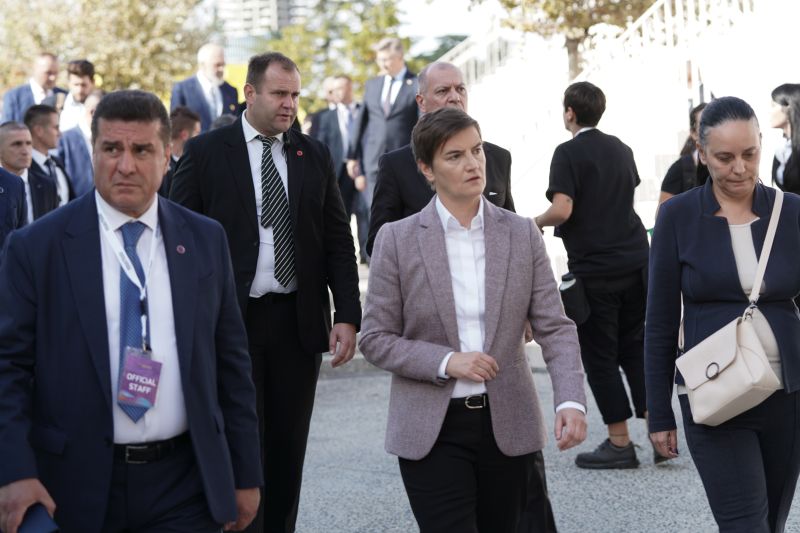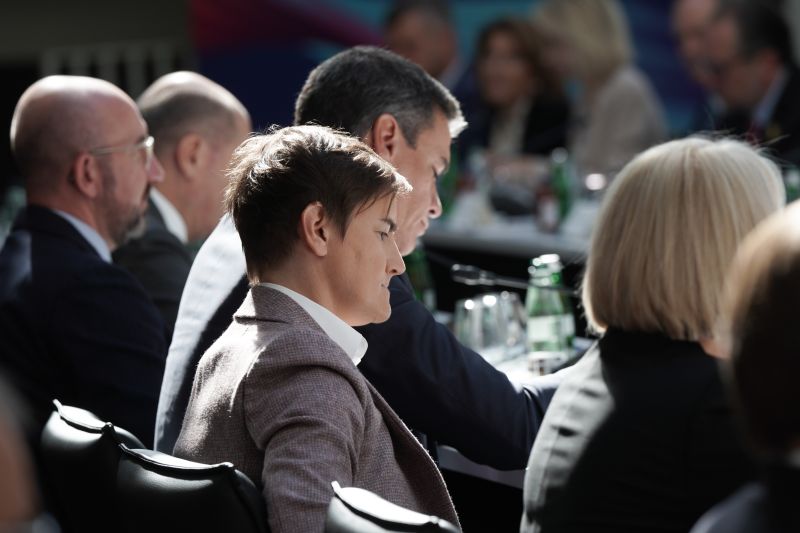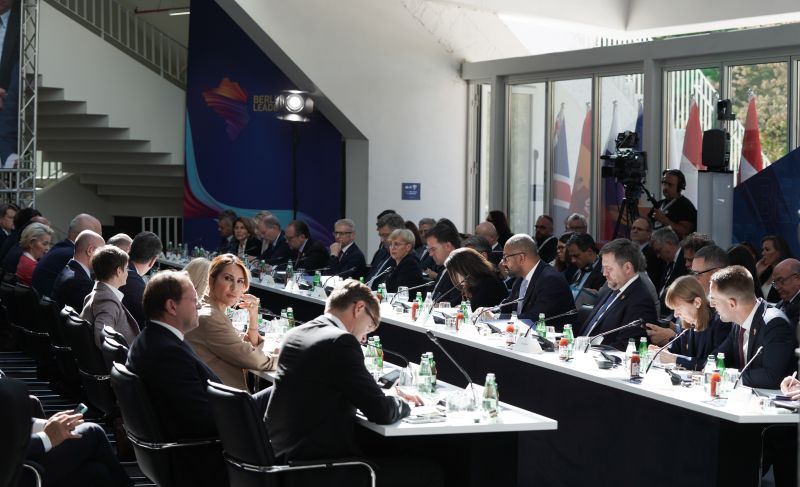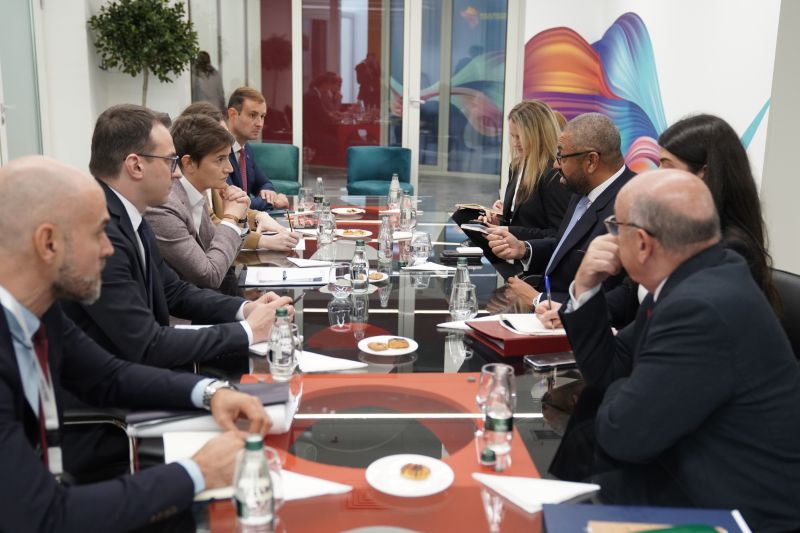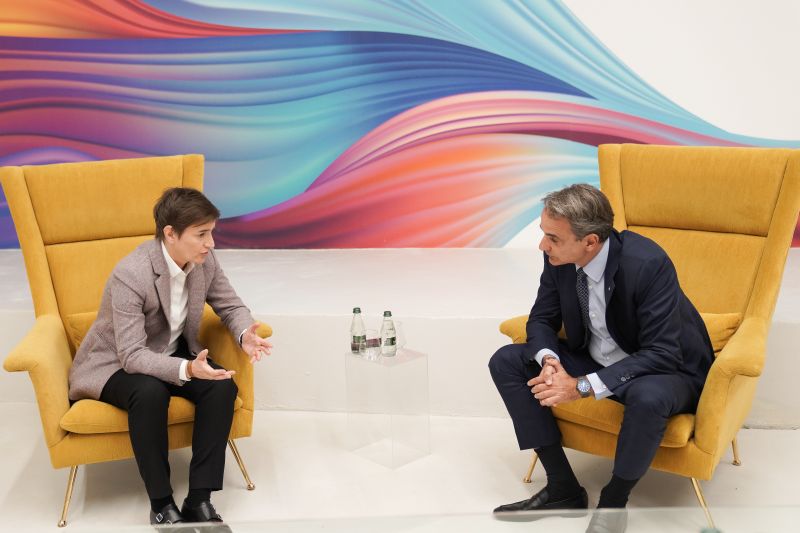Prime Minister Ana Brnabic stated today in Tirana, where the summit of the Berlin Process is being held, that in Kosovo and Metohija there are no basic conditions for the life of Serbs and that their position is not a political, but a humanitarian issue.
- Serbia
Get to know Serbia
- Citizens
Culture and science
Health services
Pension and disability insurance
- Business
Employment
Economy
- Media
- Government
- Contact
Keep in touch
Keepin touch
Whether you have a question, comment, suggestion or any problem in the purview of the government, send us your message and we will try to respond as soon as possible. If your problem is not in our purview, we will forward your message to the relevant institution.
Basic human rights must be ensured for Serbs in Kosovo and Metohija
Brnabic stressed that there are no basic conditions for a normal life for Serbs, and that she asked that this should not be discussed as a political, but a humanitarian issue, and that basic human rights should be ensured for Serbs and the non-Albanian population.
Can they count on the fact that they will not be shot at, that they will not end up in prison and that they will not be beaten and harassed, the Prime Minister asked and emphasised that detentions for Serbs last for an average of 21 months, and that 2,000 Serb families have left Kosovo and Metohija since May this year.
She said that the topics of discussion included the events of 24 September in Banjska, the dialogue and what is to come, as well as the Brussels Agreement and the formation of the Community of Serb Municipalities.
Brnabic said that she reminded of everything that had happened before 24 September in Banjska, noting that Kurti disbanded the multi-ethnic police in the north of Kosovo and Metohija.
She said that today in Tirana, the issue of the Community of Serb Municipalities in Kosovo and Metohija was clearly communicated before the prime minister of the temporary institutions of self-government in Pristina, Albin Kurti, and that all European officials supported the establishment of the Community of Serb Municipalities.
All the representatives of the EU member states present at the summit, representatives of the European Commission, the European Council and other institutions talked about the necessity to establish the Community of Serb Municipalities and that this is something that is not only envisaged by the Brussels Agreement, but also by the Ohrid Implementation Plan, Brnabic stated.
The Prime Minister emphasised that Serbia will certainly be ready for EU enlargement by 2030, but that whether the enlargement will happen depends more on the EU and European internal reforms.
She expressed her gratitude to Charles Michel for again mentioning 2030 as the date for enlargement and for speaking at every regional meeting about it and the necessity of a stronger and clearer signal about EU enlargement.
The Prime Minister assessed that the Berlin Process is very good for our region, recalling that, thanks to that process, which was launched in 2014 at the initiative of Angela Merkel, the Council for Regional Cooperation of Youth and the Regional Investment Forum were established as the chamber of commerce of the Western Balkans, as and an action plan for regional economic integration and a single regional market.
This is all the result of the Berlin Process and I am glad that today we will sign another agreement and it is in line with our priorities. We believe in connecting and better regional cooperation and connecting people, she said.
Brnabic said that, as regards the new plan for the economic growth of the Western Balkans and additional investments of up to two billion euros within that plan, we have already nominated projects and were the first to the Western Balkans to submit a complete portfolio of projects.
It comes as no surprise that that money will be conditioned on how quickly you implement reforms and in what way. We believe in them and do not run away from reforms, because we think they will lead to a stronger and more administratively stronger Serbia, which will be better for all citizens, the Prime Minister pointed out.
The Prime Minister said that during the summit she met with President of the Republic of Hungary Katalin Novak, Secretary of State for Foreign, Commonwealth and Development Affairs of the United Kingdom of Great Britain and Northern Ireland James Cleverly, Prime Minister of Spain Pedro Sánchez, Prime Minister of the Netherlands Mark Rutte, and that she also had a brief conversation with President of the European Commission Ursula von der Leyen.
Brnabic also added that she does not expect easy talks at the upcoming meeting of the "big five" in Belgrade on 21 October, but that she expects help to ensure basic human rights for Serbs in Kosovo and Metohija.
-
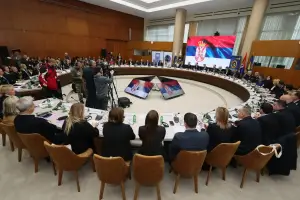 Belgrade, 27 November 2025
Belgrade, 27 November 2025Inclusion of women in security structures key to safer, more stable society
-
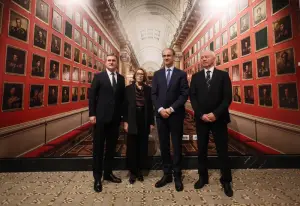 Belgrade, 26 November 2025
Belgrade, 26 November 2025Macut opens Traces of Light: Serbs in the Mirror of the Hermitage exhibition
-
 Belgrade, 26 November 2025
Belgrade, 26 November 2025Young people as visionaries of future modern Serbia
-
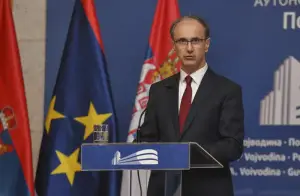 Novi Sad, 25 November 2025
Novi Sad, 25 November 2025Unification of Vojvodina with Serbia realisation of centuries-old dream
-
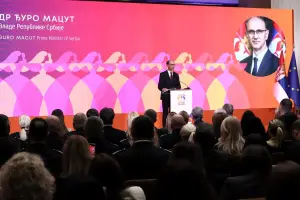 Belgrade, 25 November 2025
Belgrade, 25 November 2025Serbia makes significant step in fight against violence against women
-
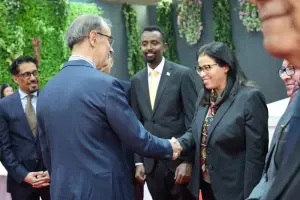 Belgrade, 23 November 2025
Belgrade, 23 November 2025Potential for further improving cooperation between Serbia, Arab countries
-
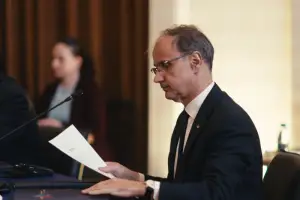 Belgrade/Tirana, 21 November 2025
Belgrade/Tirana, 21 November 2025Connected region best path to full EU membership
-
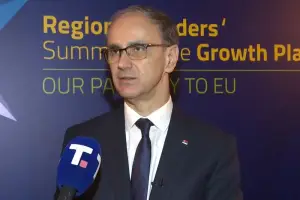 Belgrade/Tirana, 21 November 2025
Belgrade/Tirana, 21 November 2025Serbia on right track in meeting EU accession criteria
-
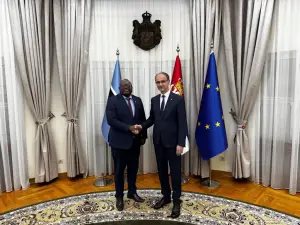 Belgrade, 21 November 2025
Belgrade, 21 November 2025Serbia, Botswana committed to peace, respect for international law
-
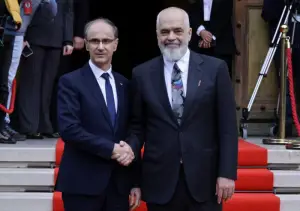 Belgrade/Tirana, 21 November 2025
Belgrade/Tirana, 21 November 2025Prime Minister Macut at Western Balkans Leaders’ Summit

